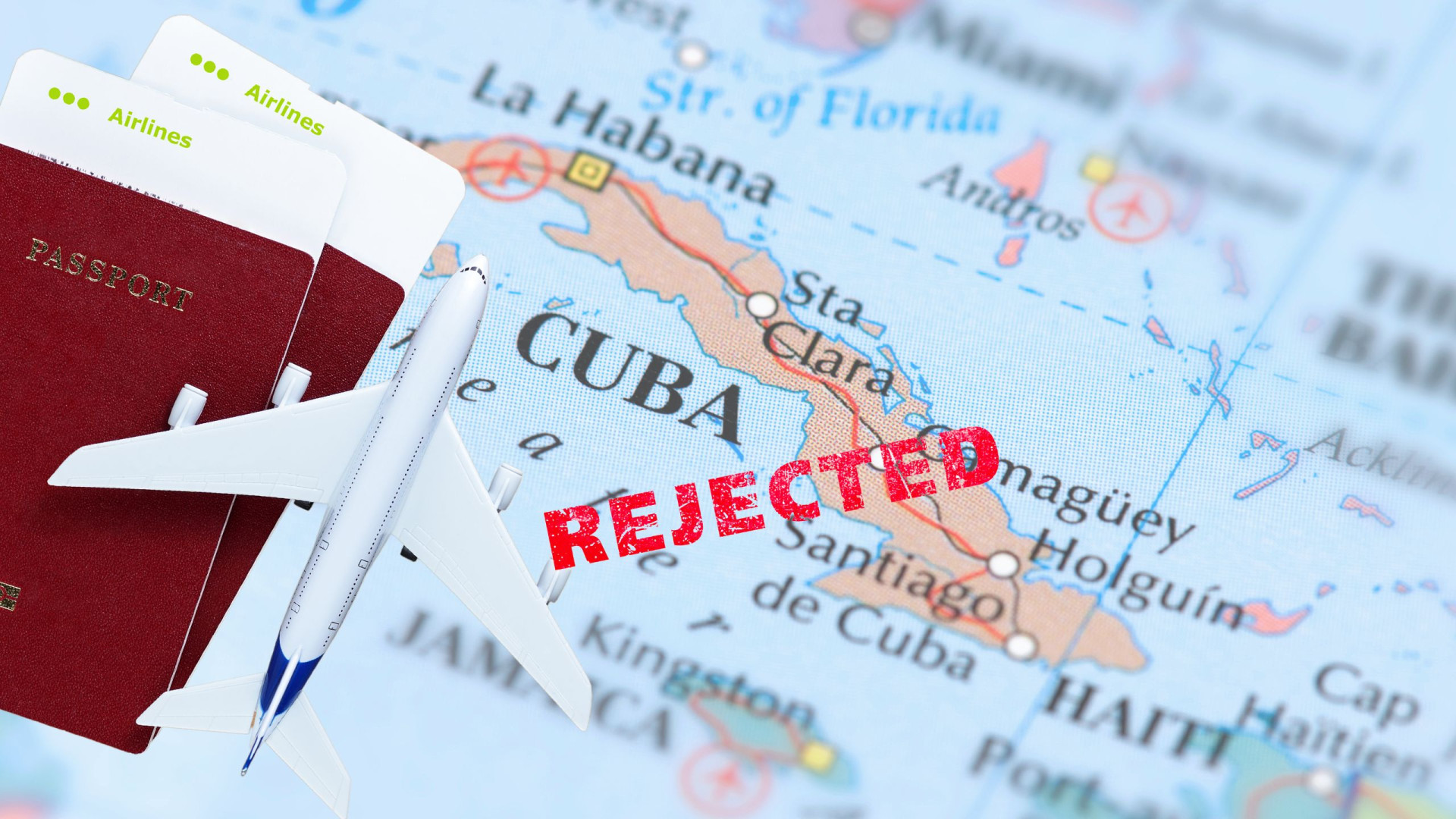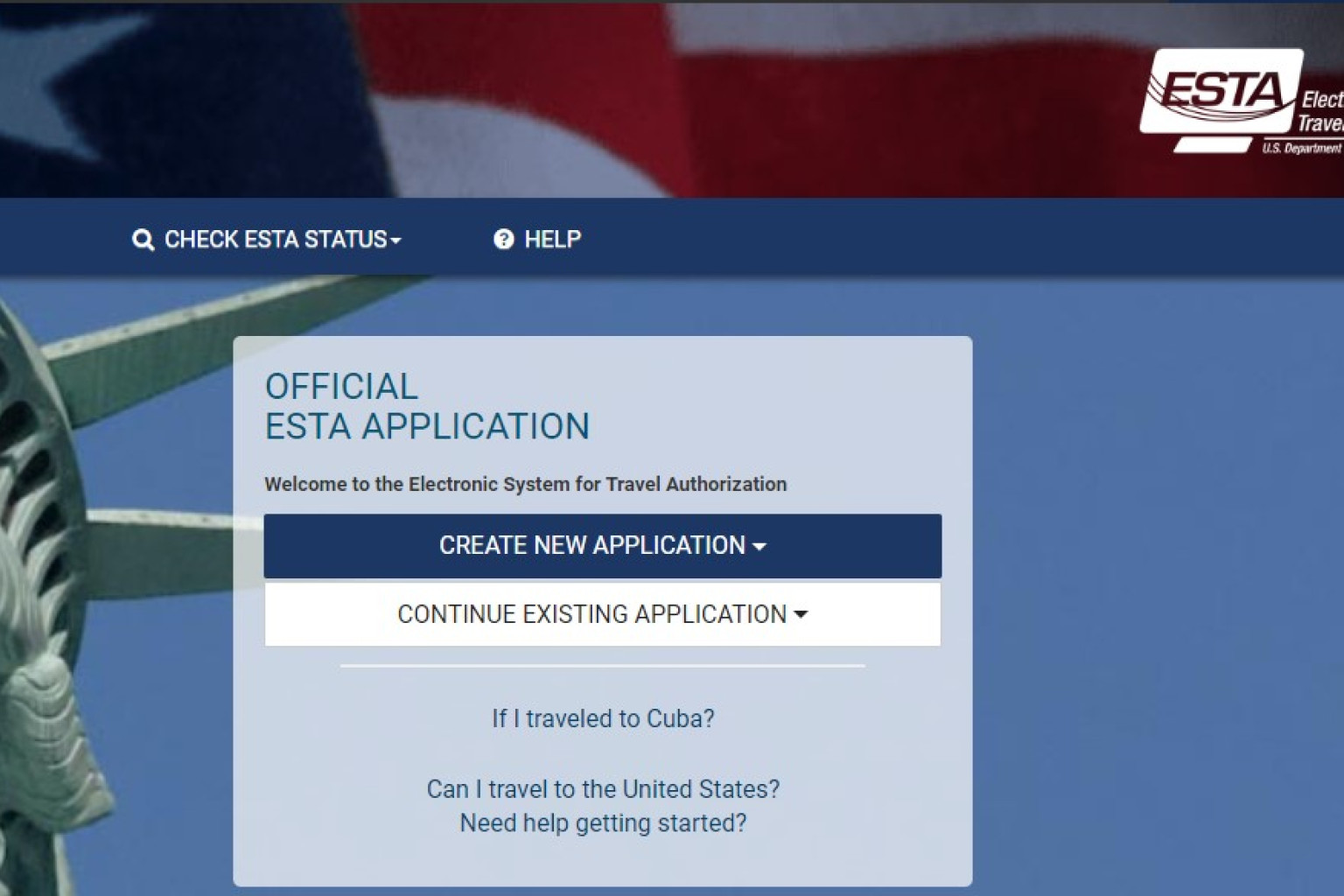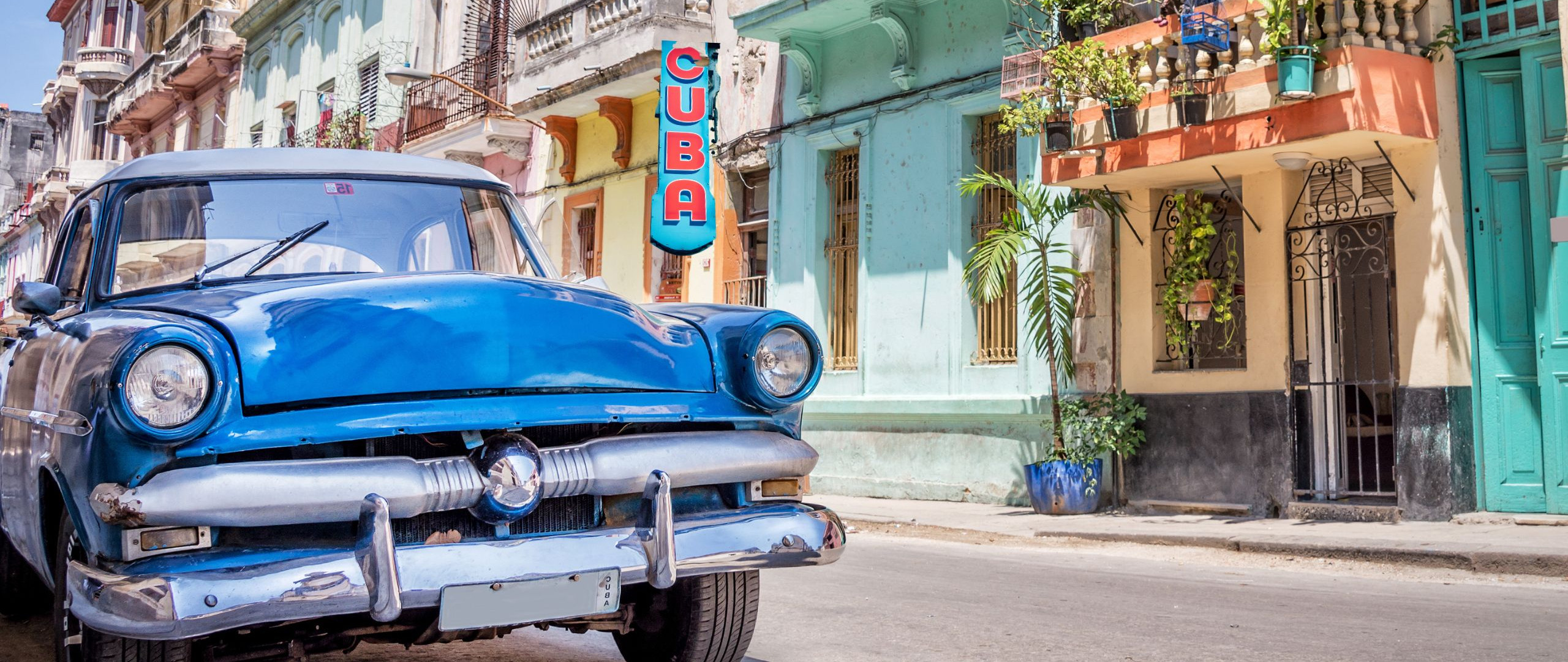Updated on 31.08.2023
Share article:

Travelers to the USA were repeatedly confronted with cases in which people who attempted to travel with an ESTA authorization to enter the USA under the Visa Waiver Program on the basis of a Cuba entry stamp in the passport, (dual) Cuban citizenship or residence permit are turned away at border control. In addition, there have been an increasing number of reports of people who have subsequently been withdrawn an already approved ESTA application - in some cases without notification from U.S. Customs and Border Protection, which administers this program. Some of these travelers only found out at the airport at check-in that they no longer had a permit and were therefore denied entry.
For months, there has been a note on Cuba in the FAQ section of the official ESTA website that travelers who have visited a State Sponsor of Terrorism, regardless of the time period, are no longer authorized to enter the USA visa-free with ESTA, but must apply for a visa. Cuba was reclassified as a State Sponsor of Terrorism at the beginning of 2021.

To addition to the Cuba notice was made in July 2023 and clarifies that only persons who stayed in Cuba on or after January 12, 2021 are affected by the ESTA block and can only enter the USA with a visa.
In recent years, tourist travel from the USA to Cuba was prohibited, regardless of route or nationality, unless there were special reasons for traveling.
Further updates on this topic can be found here.

Since Fidel Castro came to power in 1959, relations between the USA and Cuba have not only survived a nuclear crisis and a long US economic embargo, but also ongoing political hostilities.
The issue of Cuba as a state sponsor of terrorism first arose in the 1980s, when then US President Ronald Reagan categorized Cuba as a state sponsor of terrorism because he accused the Castro government of supporting militant communist groups in African and Latin American countries with its national liberation movements.
It took President Barack Obama more than 50 years to strengthen diplomatic relations between Cuba and the USA and lift many restrictions. In 2015, the US State Department officially removed Cuba from its list of state sponsors of terrorism. For the first time since the 1960s, both countries opened their respective embassies and connecting air traffic with passengers was able to resume.

However, during his time in office (2016 - 2020), former US President Trump once again banned travel to Cuba and charged the country with renewed accusations of sponsoring terrorism. On January 12, 2021, the Trump administration officially put Cuba back on the SST list which otherwise only includes three other countries: Iran, North Korea and Syria.
The current US President Joe Biden, who is pursuing a similar political strategy on many issues as Obama did when he was in office, eased some of Trump's restrictions on Cuba in spring 2022, such as flight restrictions, a family reunification program and improved visa processing. Despite all this, Cuba remains on the U.S. Department of State's SST list.
For people who need help with the ESTA application, this can also be booked through an agency. The specialized team of our partner company assists USA travelers with the application process for an additional service fee.
Services include:
In order to be on the safe side when entering the USA and to avoid being turned away at the border, travelers who have a Cuba stamp in their passport or who have visited Cuba once should apply for a visa.
Persons who have stayed in Cuba on or after January 12, 2021 must apply for a B tourist visa to enter the USA. They are no longer eligible to participate in the Visa Waiver Program (VWP, ESTA). The same applies to dual nationals of a VWP country and Cuba.
However, a B visa not only gives you a longer period of stay of 180 days per entry, but you can also use the visa for up to 10 years on average (depending on your nationality).
Unfortunately, there are still sometimes long waiting times of several weeks for available interview appointments at the relevant US consulates to apply for a B visa. Former travelers to Cuba or dual nationals must therefore allow sufficient lead time for visa applications when planning their trip to the USA.
Sources:
https://esta.cbp.dhs.gov/faq
https://www.fvw.de/touristik/destination/wegen-terrorgefahr-usa-verweigern-kuba-urlaubern-die-einreise-228758
https://www.auswaertiges-amt.de/de/aussenpolitik/laender/kuba-node/kubasicherheit/212208
https://www.zeit.de/politik/2022-06/kuba-wirtschaftskrise-hunger-protest-nachrichtenpodcast
https://www.washingtonpost.com/travel/2022/06/02/new-cuba-policy-travel-americans
https://www.state.gov/state-sponsors-of-terrorism
https://reisetopia.de/news/kuba-reise-verhindert-us-einreise-esta
https://amerika21.de/2020/12/246178/waehrungsreform-kuba-januar
https://www.cfr.org/timeline/us-cuba-relations
Date:
We and our partners use cookies to store and retrieve personally identifiable information, such as browsing data, to provide and personalize content and advertising, and to analyze website usage and improve the user experience. You can learn more about the purposes for which we and our partners use cookies by clicking on the "Cookie Settings" button below. All settings can also be changed here. Subsequently, you can reconsider your cookie selection or revoke your consent at any time by clicking on the cookie settings link in the footer of our website. Please note that blocking some cookie types may have our ability to provide content tailored to your interests or may limit the availability of some website features.
By clicking "Accept All Cookies" you consent to our use and sharing of your information with our partners.